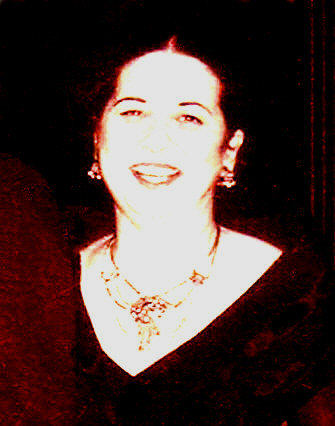NPR features a collection of inspiring essays in a series called “This I Believe.” On the plane ride to my college alma mater, Saint Mary’s College (across from Notre Dame), for my 15-year reunion, I read through some of the older essays now compiled in a book.
As I ran around the lakes of Notre Dame like I did when I was 20 and prayed at the same quiet corners of Saint Mary’s College campus where I hid out almost two decades ago, I wondered what I believed now and how my essay would read.
One afternoon during the reunion, I had coffee with one of my Religious Studies professors: an insightful, wise, and intuitive woman who taught me in a course called “Women and Sexuality.” She scribbled this sentence on the bottom of the paper in which I argued that all persons having premarital sex will burn in hell: “Try to tackle this topic and others with a little more nuance.”
In other words: The zebra-like thinking that you’re using to shield you from life’s hard blows can cause their own problems and will overnight your fragile heart to the very painful place you were trying to escape.
At the time I blew off her words, of course, because I wanted so badly to believe that if I lived according to the Catechism of the Catholic Church, suffering would pass over me like the night the Hebrews stained their doors with the blood of a lamb.
Two years later, having lost my father to a bronchial pneumonia and spending a chunk of my day talking to attorneys in order to defend myself (and my sisters) in an ugly family law suit we didn’t see coming, I realized there was no safety in clean lines, and that no matter how hard I tried to apply an equation to the situation, I ended up walking in circles filled with endless questions. I thought about her wise words–the importance of a nuanced approach to life’s frustrations and joys–and the wisdom in learning how to appreciate the questions, even if we never figure out the answers.
So, here is the essay I came up with: about a world of colors … I suspect all of you who suffer from mood disorders have had to do the same exercise in your mind because illness–and especially mental illness–makes zebra thinking almost impossible (if you want to stay alive and happy).
I believe in a world of colors. A Crayola box full. A life of hues that exists between the continents of Black and White. I believe in nuanced theories rather than dogmatic statements, in thoughtful queries over simplistic answers. I believe in confusion and wonder as a path to clarity.
I believe in questions. And the presence of God in mystery.
I believe in conversations. Lots of them. In different languages. Between contrasting cultures. Among incompatible people. I believe in difficult and awkward dialog between mothers and daughters, fathers and sons, siblings, neighbors, and friends. I believe in challenging negotiations between countries, families, and people.
I believe in uncertainty and fuzzy lines, and in forgiveness.
I believe in optimism. In believing the best about a person even when his behavior says otherwise. I believe that in all evil there exists a chance for goodness, and that in all darkness is found a speck of light. And I believe that pure virtue isn’t immune to corruption, that truth and light can emerge from darkness.
I believe in stripes. Not solids.
I believe that a person can change her opinions as many times as she wishes throughout her life. That the woman who lived by every rule in the Catechism of the Catholic Church in college is allowed to recognize the wisdom in the four noble truths of Buddhism after her graduation, that one philosophy need not define her forever.
I believe in the beauty of evolution. Of the mind and spirit and body. And in different seasons.
I believe that a diagnosis doesn’t have to predict someone’s future. That in every recovery there exists the possibility of a miracle. I believe less in symptoms than I do in strategies for healthy living that treat every functioning organ within the human body and the soul that encapsulates all of them. I believe in all kinds of medicine and every type of treatment that better connect a person’s mind, body, and soul to each other.
I believe in healing and wholeness.
I believe in a world of communities, not individuals, and that a person cannot thrive independently, outside of his relationships. I believe the actions of one human being always affects his brother, sister, neighbor, and friend, which makes him accountable to all those persons. I believe no one gets sick by himself, and seldom can a person recover all alone.
I believe in the sacredness of relationships. And in world in which we are responsible for one another.
I believe in a God who likes to paint in colors, who created a world of vibrant hues. I believe that life is about a journey, not just a destination, and that our existence is more about becoming comfortable with our questions than at arriving at the answers.
To read more Beyond Blue, go to www.beliefnet.com/beyondblue, and to get to Group Beyond Blue, a support group at Beliefnet Community, click here.

